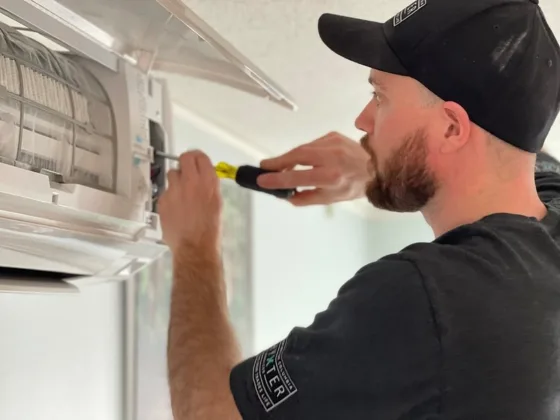Intro: Anyone who has ever bought a house knows that it can be a very costly endeavor. From the down payment to monthly mortgage payments, there are many financial considerations to consider when buying a home.
However, careful planning and advanced preparation can make the process much less daunting. This blog post will discuss some tips for planning your finances for purchasing a new house.

So, if you’re in the market for a new home, read on for helpful advice on making the process as affordable as possible.
1. Calculate Your Savings
One of the most important things to do when planning your finances for a new house is to calculate your savings.
It will give you a good idea of how much money you’ll have available for a down payment and other associated costs. To calculate your savings, add up all of the money you have in your savings account, plus any other investments or assets you may have.
It will give you a good starting point for planning your budget. You will know what kind of mortgage payment you can afford and how much you’ll need for a down payment.
Remember that your savings should also cover any unexpected costs associated with buying a new home, such as repairs or renovations.
2. Set A Budget
Start by evaluating your current financial situation. Take into account your income, debts, and other financial obligations. Then, set a realistic budget for your new home purchase.
Start by taking into account your current expenses, including your mortgage payment, property taxes, and insurance. Then, factor in the estimated costs of buying a new house, such as the down payment, closing costs, and moving expenses.
Doing this gives you a clear picture of your overall financial situation and how much wiggle room you have in your budget for a new home. Once you know how much money you have available, you can start to set a budget for your new home purchase.
By creating a budget in advance, you can avoid overspending and ensure that you have the financial resources available when purchasing your new home.
Read Also:
3. Get Pre-Approved for a Mortgage
Once you’ve determined how much you can afford to spend on a new house, it’s time to get pre-approved for a mortgage. It will give you a clear idea of the interest rate you’ll be paying and the maximum loan amount you’ll be able to borrow.
Additionally, being pre-approved will show sellers that you’re a serious buyer, which could give you an edge in a competitive housing market. Be sure to compare rates from multiple lenders, as they can vary significantly.
You can also try negotiating with lenders to see if they’re willing to lower their rates.
4. Look For Government Grants
Several government grants are available for first-time homebuyers. These can help with things like the down payment or closing costs. Be sure to research what’s available in your area and see if you qualify.
The government offers financial aid for first time home buyers in the form of grants. These are typically given to help with a down payment or closing costs and can be a great resource if you’re struggling to come up with the necessary funds.
It can help when trying to come up with the money for a down payment or closing costs.
5. Check Your Credit Score
Your credit score is one of the most critical factors in determining whether or not you’ll be approved for a mortgage. So, before you start shopping for a new home, it’s a good idea to check your credit report and score.
It will give you an idea of where you stand financially and whether or not you need to work on improving your credit before applying for a mortgage.
6. Choose The Right Time to Buy a House
The timing of when you purchase a home can also affect how much money you’ll need to save. Generally speaking, prices are highest in the spring and summer months.
If you’re able to wait until the fall or winter to buy, you may be able to get a better deal. For example, buying a house during the peak of the housing market will likely cost more than if you wait for the market to cool down.
If you’re flexible with your timing, it may pay off, in the long run, to wait for a more favorable market.
Some markets are more inelastic than others. For example, new austin homes are priced in the upper tier of the market, compared to new homes outside the state of Texas.
7. Be Prepared for Additional Costs
When budgeting for a new house, consider additional costs beyond the purchase price. For example, you’ll need to factor in the cost of furnishing and decorating your new home.
Additionally, moving from a rental unit, you may need to pay movers and storage fees. And don’t forget about the potential for unexpected repairs or maintenance issues.
All these factors can add up, so be sure to factor them into your budget when planning a new home purchase.
8. Budget for Home Repairs and Upgrades
One of the realities of homeownership is that there will always be something that needs to be fixed or updated. Whether it’s a broken appliance, a leaky faucet, or an overdue new coat of paint, budgeting for home repairs and upgrades is an essential part of ownership.
Setting aside money each month for these potential expenses allows you to avoid being caught off guard when something needs to be fixed.
It’s always a good idea to set aside some money for unexpected repairs or upgrades that may be needed once you move into your new home. Having a repair fund can avoid being caught off guard by unexpected costs.
9. Have an Emergency Fund
Another essential consideration when budgeting for a new home is to have an emergency fund in place.
It will help you cover unexpected costs associated with owning a home, such as a significant repair or unplanned landscaping expense. Having an emergency fund can avoid going into debt to pay for these unexpected costs.
Conclusion: Purchasing a new house is a significant financial investment. There are a lot of costs to consider, from the down payment to monthly mortgage payments.
However, careful planning and advanced preparation can make the process much less daunting. Following these tips can help ensure that you are financially prepared to purchase a new home.
Doing your research and planning can make the process much less stressful and more affordable.












